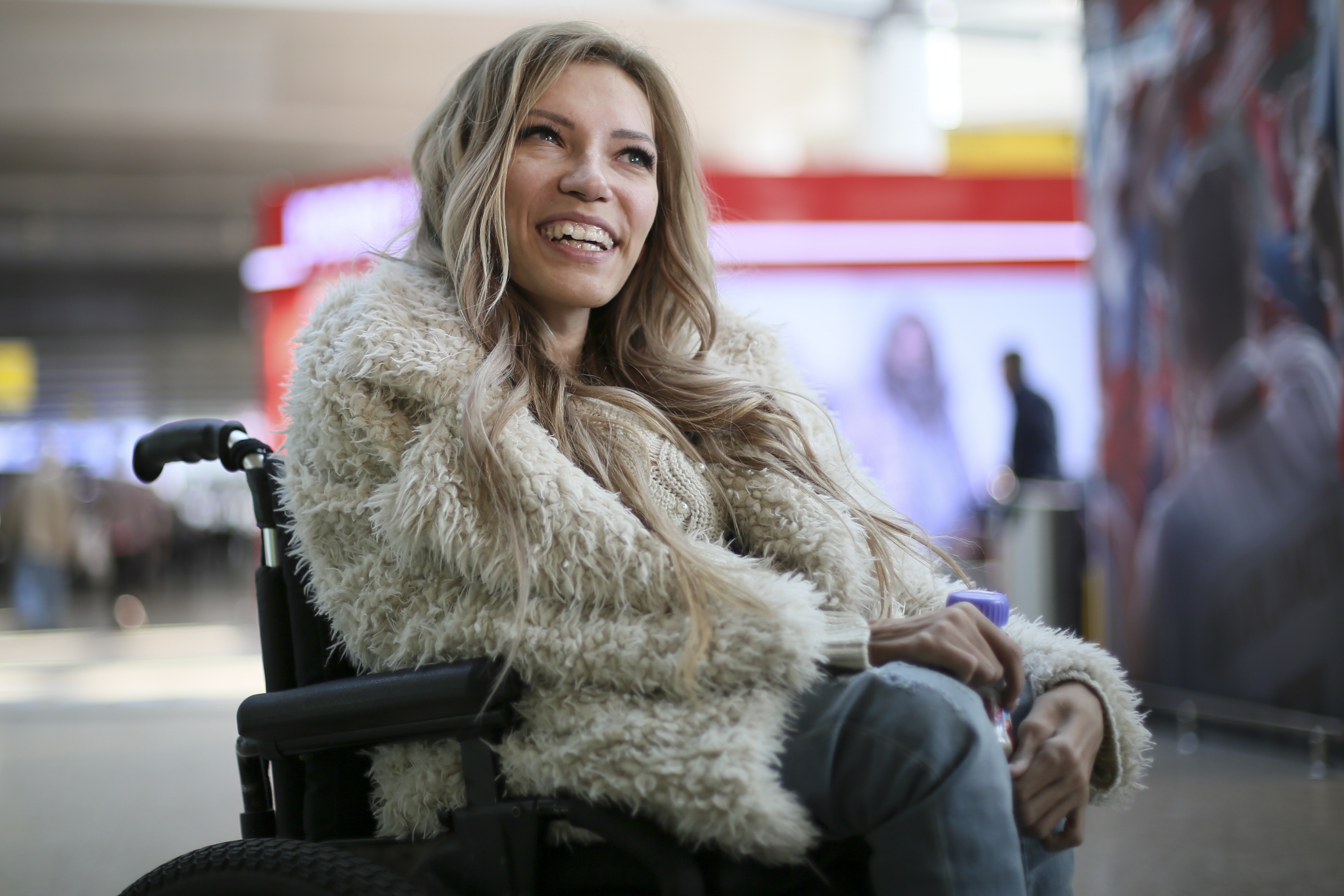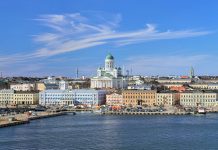Moscow (AP) – The Eurovision song contest, nominally an apolitical festival of pop music confections and cheerfully tacky costumes, erupted into a political dispute last week after Ukraine banned Russia’s contestant from entering the country.
Yulia Samoylova, who was to represent Russia in the May 11-13 contest in the Ukrainian capital Kiev, was banned by Ukraine’s security service because she had toured in Crimea after Russia’s 2014 annexation of the peninsula from Ukraine.
Ukrainian law allows the banning of anyone who enters Crimea by routes other than over the de-facto border with the Ukrainian mainland. Most Russians go to Crimea by ferry or air.

Ukrainian Security Service spokeswoman Olena Gitlanska said on her Facebook page that the service has banned Samoylova from the country for three years “on the basis of information received about her violation of Ukrainian law.”
The reaction from Moscow was swift and furious.
“This is yet another openly cynical and inhuman act by the authorities in Kiev,” Deputy Foreign Minister Grigory Karasin told the state news agency Tass.
“Kiev, apparently, was seriously frightened by a fragile girl,” a Foreign Ministry statement said, apparently referring to the 27-year-old being wheelchair-bound.
Tensions between Moscow and Kiev have been high since the 2014 annexation of Crimea and the beginning that year of a Russia-backed separatist insurgency in east Ukraine that has killed nearly 10,000 people.
The Samoylova ban adds fuel to the fire partly because of her disability; she has used a wheelchair since childhood.
The European Broadcasting Union, which organizes Eurovision, said in a statement that it would negotiate with Ukraine on Samoylova’s entry. “We are deeply disappointed in this decision as we feel it goes against both the spirit of the contest, and the notion of inclusivity that lies at the heart of its values,” the statement said.
Eurovision rules proscribe political song lyrics, but the annual contest can carry a strong political message. In 2005, when the finals were held in Kiev, Ukraine’s entry performed a song that had become the unofficial anthem of the Orange Revolution protests that overturned a fraudulent 2004 presidential election.
Ukraine won the right to host this year’s final when Crimean Tatar singer Jamala won last year’s contest with a song about her ancestors’ suffering during the deportations of Soviet dictator Josef Stalin. Many Russians bristled at the song, which they saw as a tacit criticism of Crimea’s annexation.
In 2009, the EBU rejected Georgia’s entry, a disco-flavored song called “We Don’t Wanna Put In,” a barely veiled criticism of Russian leader Vladimir Putin in the wake of the previous year’s short war between Georgia and Russia.




